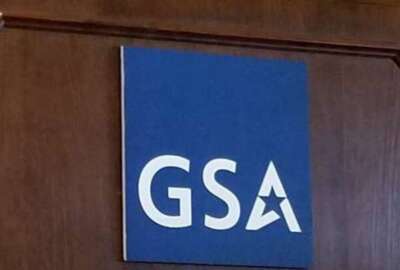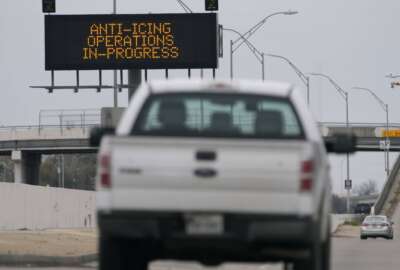Supreme Court decision helps clarify whistleblower protections
The Supreme Court upheld an appeals court's decision that Robert MacLean is eligible for whistleblower protection. The TSA fired the former air marshal for leaking...
wfedstaff | April 18, 2015 12:29 am
The Supreme Court issued a ruling Wednesday that helps to solidify protections for federal employees who blow the whistle on agency wrongdoing.
By a 7-2 vote, the court ruled that Robert MacLean, a former air marshal who leaked information to the media about security cutbacks, is eligible for whistleblower protection.
The justices said MacLean did not violate federal law when he told an MSNBC reporter in 2003 about Transportation Security Administration plans to cut back overnight trips for undercover air marshals as a way to save money. MacLean went to the press after his superiors ignored his concerns.
Once the MSNBC report was published, members in Congress expressed outrage, prompting the Department of Homeland Security to reverse its plans. Three years later, MacLean was fired by the TSA after it learned he was the leaker.
Although a federal appeals court sided with MacClean, the Obama administration appealed the decision. Its appeal hinged on the argument that whistleblower laws did not protect federal employees who shared information that was “prohibited by law” or by an executive order. TSA regulations prohibit employees from sharing “sensitive security information,” such as the travel status of air marshals.
“There was a Department of Homeland Security regulation that pertained to law enforcement information, and the government’s position was that that regulation had the force of law,” Mathew Tully, founding partner of Tully Rinckey PLLC, told In Depth with Francis Rose Wednesday. “Because of that prohibition, he could not disclose this law enforcement information to others outside of law enforcement. What the Supreme Court held is that an agency can’t create a regulation that prevents whistleblowing, and that is the main ramification out of this case.”
Chief Justice John Roberts said in his opinion for the court that nothing in federal law prohibits MacLean from doing what he did. The government has raised legitimate security concerns, Roberts said, but they must be addressed by the President through an executive order or Congress by changing the law.
“Although Congress and the president each has the power to address the government’s concerns, neither has done so. It is not our role to do so for them,” he wrote.
Justices Sonia Sotomayor and Anthony Kennedy dissented.
“If MacLean had lost, that would’ve opened up a tidal wave for every government agency that has the ability to enact a regulation to enact a regulation that prevents their employees from disclosing the internal deliberations or communications of the agency to outsiders, which would undercut the Whistleblower Protection Act,” Tully said.
MacLean said that he was honored and grateful for the court’s decision.
“Many great people from non-government organizations, the U.S. Office of Special Counsel, Congress, and the courts came together to make this happen,” he said, in a press release issued by the Government Accountability Project, a whistleblower support group that represented MacLean in his case. “I believe this ruling will give other federal employees more confidence in exposing wrongdoing without breaking the law. No matter what happens, it will always be difficult for a person to risk his career when speaking out.”
Tom Devine, GAP’s legal director and one of MacLean’s lawyers, said that the court’s decision ended MacLean’s eight-year journey in seeking justice.
“The only issue left is whether MacLean was reasonable to believe that the government’s decision to remove air marshals from targeted flights endangered the public, since the Department of Homeland Security had planned to go AWOL in the face of a more ambitious rerun of 9/11,” Devine said. “The ruling is a historic victory for the right of individuals to make a difference through freedom of speech.”
Tully Rinckey filed an amicus curiae in support of MacLean’s case on behalf of Blacks in Government, the Emerald Society of the Federal Law Enforcement Associations and the Federal Law Enforcement Officers Association.
“The Supreme Court just delivered a reality check to agency leadership: You can’t make a regulation, call it a law, and use the regulation to punish whistleblowers,” Tully said in a release. “If you want to make laws, quit and run for Congress. If you want to run an agency, be prepared to hear from employees who, thanks to today’s decision, can blow the whistle on government fraud, waste and mismanagement without fear of retaliation justified by semantics.”
The court’s decision helps to clarify what a “protected disclosure” is under the Whistleblower Protection Act. “Employees will not have to guess whether a disclosure is protected,” the Tully Rinckey release said. “They can simply refer to a relevant statute to reach a conclusion over WPA coverage.”
In addition, agencies will not be able to hide wrongdoing nor punish whistleblowers by simply calling the information associated with the wrongdoing “Sensitive Security Information.”
MacLean also had argued that the information about cutting overnight trips wasn’t really sensitive because it had been sent as a text to his cell phone without using more secure methods.
The government warned that allowing MacLean to gain whistleblower status would only encourage other federal employees to divulge secret information, posing a future threat to public safety. Roberts repeated what several justices said during arguments in November — that if the safety issue were grave enough, the President could simply sign an executive order prohibiting federal workers from revealing such sensitive data.
Last September, MacLean and Devine joined other whistleblowers and whistleblower advocates at a hearing of the House Subcommittee on Federal Workforce, U.S. Postal Service and the Census, which was investigating the status of protections laid out in the The Whistleblower Protection Enhancement Act of 2012.
In his testimony before the committee, Devine described the significance MacLean’s case had for defining the scope of whistleblower protections.
“At stake are the two most basic, significant premises for this law,” Devine said. “First that only Congress can restrict public whistleblowing disclosures, not the agencies who allegedly engaged in fraud, waste, abuse, illegality or activities threatening the public. Otherwise, wrongdoers would have the right to get whistleblowers exposing their own conduct.”
Another premise was that when Congress restricts public whistleblowing disclosures, it must do so “with specificity,” he said. If not, employees will be unsure of the legal rights they have as potential whistleblowers.
“The uncertainty creates an inherent chilling effect,” he said. “An adverse ruling would cancel everything that we accomplished in the Whistleblower Protection Enhancement Act.”
According to Tully, MacLean’s case will head back to the Merit Systems Protection Board to determine if a violation of the Whistleblower Protection Act actually occurred.
“If he wins that claim, he will get back pay and benefits from the date that he was improperly terminated,” he said.
The Associated Press contributed to this story.
RELATED STORIES:
Federal whistleblowers face ‘best and worst’ of times, expert says
Supreme Court takes up case of fired air marshal
Copyright © 2025 Federal News Network. All rights reserved. This website is not intended for users located within the European Economic Area.
Michael O’Connell is senior digital editor of Federal News Network optimizing content for the best user experience. Follow @moconnellWFED
Follow @moconnellWFED






